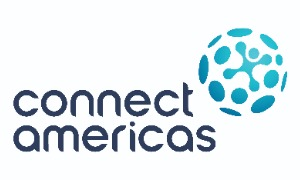In 1990 Daniel Goleman introduced the idea that managing emotions was a very powerful tool, which in the long run could have more impact on our performance than our own knowledge or intellectual development.
According to this analysis, a person’s success within an organization not only depends on intelligence measured by the intellectual quotient (IQ), but on how that person manages interpersonal relations and emotions, that is to say, the skills that make up the emotional quotient (EQ).
“The new measure takes for granted having enough intellectual ability and technical know-how to do our jobs and focuses instead on personal qualities such as initiative, empathy, adaptability and persuasion”, explains Goleman.
Much of an experienced worker stems not from technical knowledge but from lessons learned and from daily participation in emotional aspects such as interacting with employees and clients, managing suppliers, solving problems, tolerance to small and big failures, among other situations.
A report published by The Guardian affirms that poor management of emotions in times of high stress makes people play down the work of colleagues, which in turn deteriorates collaboration and enhanced performance by the organization.
This is why it is important for all organizations, especially SMEs that require strong teams for survival, to work on developing and improving EQ among their collaborators. Below we describe some of the main emotional intelligence (EQ) skills according to Buenos Negocios:
- Self-awareness: Knowing your own abilities and limitations helps to establish reasonable expectations and demanding but attainable objectives. Work teams or small companies must make sure they know their collective EQ level. Are we working as a team? What do we like? What happens when things do not turn out as we wished? How do our moods impact our business performance?
- Self-regulation: Knowing how we feel should enable us to participate in obtaining better results. Can we control our emotions? Should we decide how to express ourselves or should we let ourselves go? Do we know how to adapt to the different situations that we have to face?
- Motivation: The mission, vision and values of an organization are usually the driving force behind the work team’s efforts. Are these clear to all the members? How do we ensure that we are providing our best efforts to the company?
- Empathy: Putting oneself with authentic interest in the place of the client, supplier, employee or other company stakeholders helps day-to-day management. What does he/she wish or expect? How can I satisfy their expectations? How would I feel if I were in his or her place?
- Social skills: The day-to-day work implies permanent interaction with others. How do we manage interpersonal relations? Do we care for our clients, colleagues and suppliers? Do we know how to interpret them and act consequently?
The good news is that emotional intelligence can be trained and learned. It is essential to generate awareness in the organization and work towards personal regard and relationships with others as the basis of the business’ success.



Follow Us